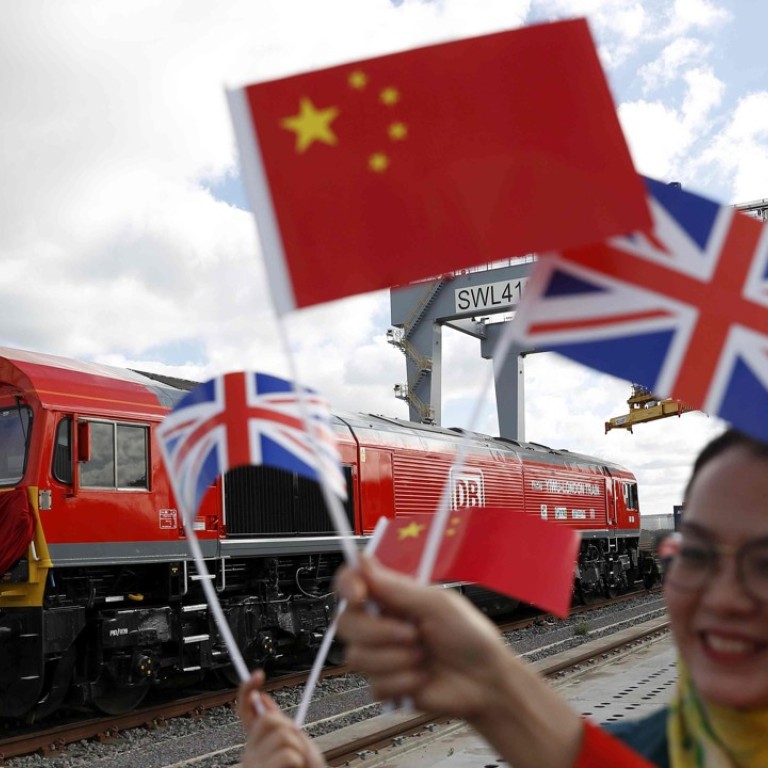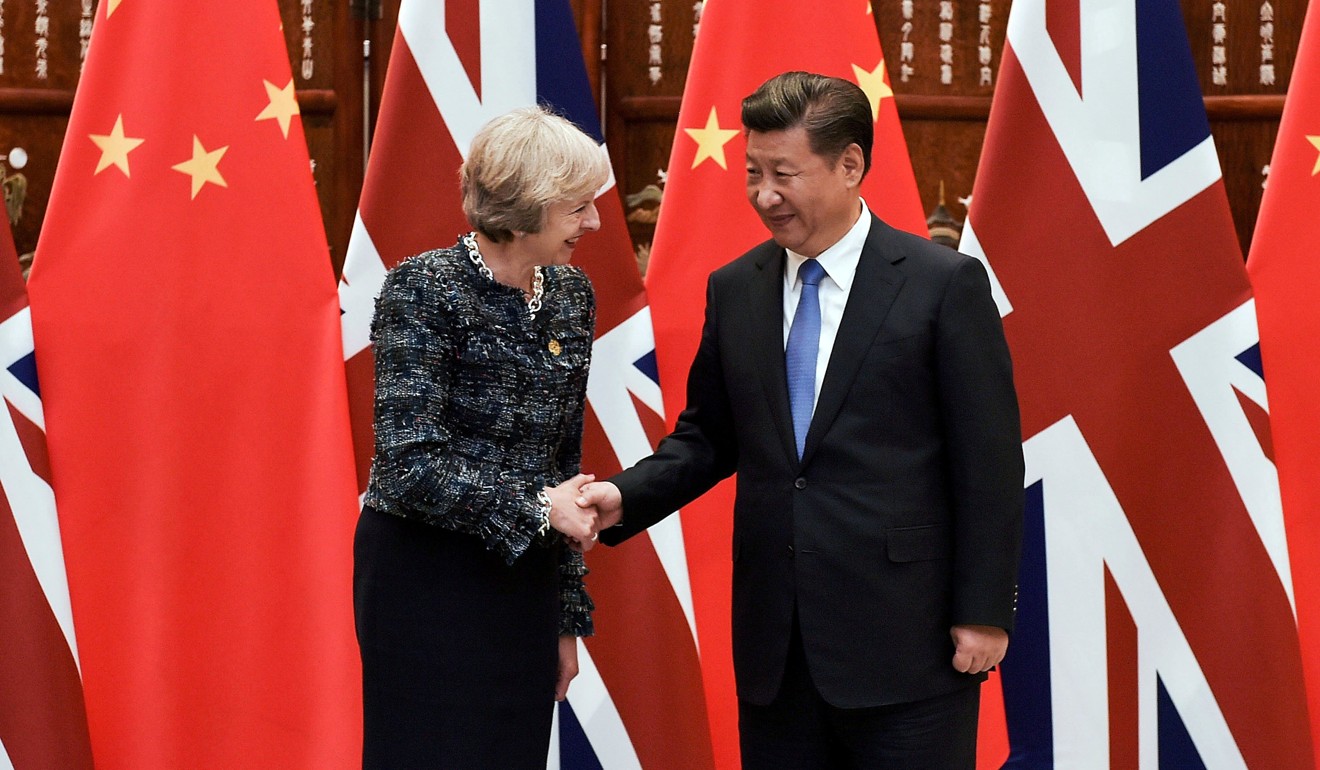
China’s importance to Britain will rise in a post-Brexit world
British PM Theresa May should seek to rebuild the vision of a ‘Golden Age’ of economic and cultural relations between the two nations, says Oxford University professor Chris Rowley
Britain’s interest in China seemed to have waned somewhat prior to last week’s general election.
This was in contrast to the public passion of former prime minister David Cameron and then-chancellor George Osborne for encouraging greater Chinese investment, cooperation and trade with a raft of high-profile statements and projects aimed at fostering closer China-UK ties in a so-called “Golden Age”.
This was conceived as a grand deal, whereby Britain offered investors and companies from China access to investment and infrastructure markets in return for privileged treatment, including the City receiving a large share of the expanding international market for renminbi finance – a high-profile signal that it was China’s key non-Asian financial partner while allowing UK-based investors direct access to trade in some Chinese stocks.
Yet when Theresa May first took over as prime minister she was seen to have a more stand-off approach, delaying a key nuclear power project, reportedly due to concerns about Chinese involvement.
However, since late last year, there have been several attempts to rebuild the earlier vision, as May flew to the G20 Summit in Hangzhou, and Chancellor Philip Hammond met Chinese officials to try to secure infrastructure and property investment in Britain’s so-called Northern Powerhouse.
Despite those efforts, by early this year, China was cooling to Britain’s project offers, had no active plans to sell further renminbi-denominated sovereign bonds after last summer’s landmark, and plans to link the stock exchanges in London and Shanghai had faded.

And then the UK general election was called. What might be the future for this attempted UK-China rapprochement and the “Golden Decade”?
As Britain emerges from a fraught election campaign and shock result, and once the difficult and tricky political result is resolved, “normal business” will resume.
This undoubtedly will involve Brexit, which will remain primus inter pares as an issue and will continue to be the government’s primary focus after the election for sure – not least as it will drive everything for Britain and the government.
In the new post-Brexit world Britain will need to be, as the prime minister put it, ever more “open for business, as a bold, confident, outward-looking country”. As part of this wider vision, China will become increasingly important.
This is composed of a set of issues. First, Britain is looking for new economic partners – so obviously an important one is to negotiate its own trade agreements directly with China. Second, currency movements have made Britain “cheaper” and exports more competitive, with impacts on Britain as an investment opportunity and destination of direct investment as Chinese firms seek overseas bases to pursue global expansion strategies.
It is also good to recall that Britain has some hi-tech value, advanced manufacturing capabilities that can dovetail with Chinese interests.
Furthermore, part of China’s globalisation will be the importance of education. Here it is interesting to note the reversal of the more normal flow of Western education institutions setting up in China (as well as in Malaysia, Thailand and Vietnam) with the high profile example of Peking University’s new HSBC business school satellite campus in Oxford, and the huge investment and commitment involved.
Third, the continuing role of the UK as a renminbi currency hub for international currency transactions will need to be addressed and if the Chinese see London as a global, not just European, financial centre.
Of course, this is Britain’s agenda – while the Chinese may be more interested in simply making money, and strategic expansion and development.
Also, the Cameron government was criticised heavily for being too eager to appease Beijing and overlook other areas, from product dumping to human rights, simply to win trade, yet perhaps Prime Minister May should have been better advised about the importance of cross-cultural issues and management – and so encouraged to have acted not so publicly in order to save face. Whatever happens politically in Britain in the coming weeks and months, it does not deflect from my final point about the need for British politicians and policymakers to continue to reduce too commonplace ethnocentric and inward-looking perspectives and embrace more open, plural and culturally aware global views.
Professor Chris Rowley is a visiting fellow at Kellogg College, University of Oxford. He is a leading figure in the study of employment and human resource management, and business and management in Asia.

